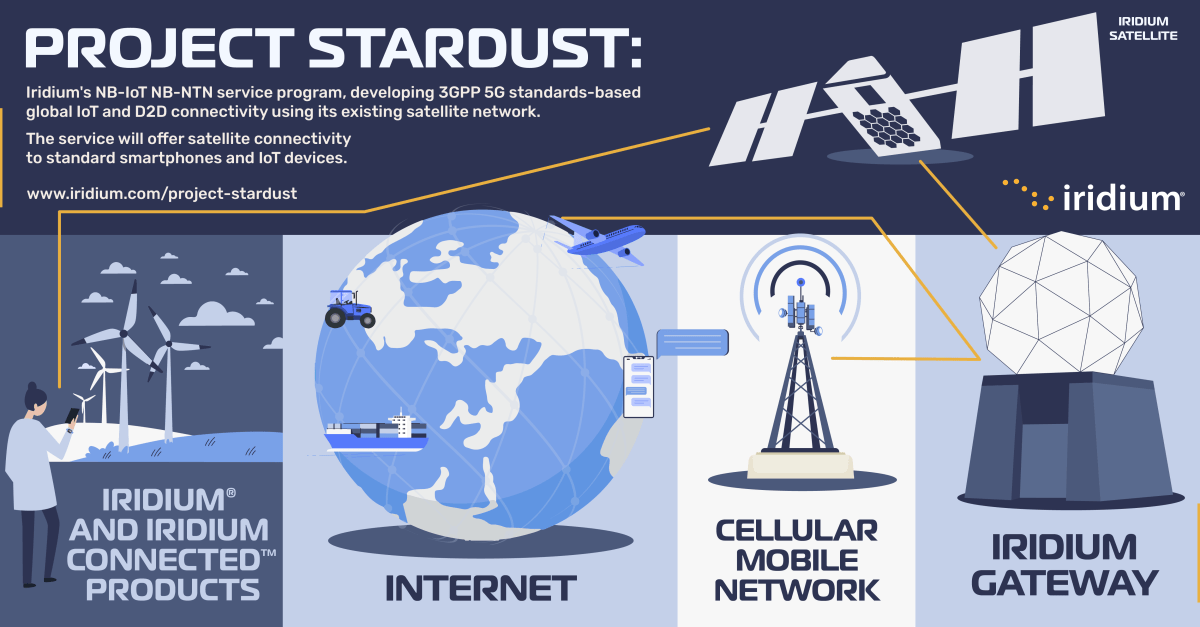TAMPA, Fla. — Iridium Communications plans to make its low Earth orbit constellation compatible with 5G standards used by mass-market smartphones, aiming to enable them to access messaging and SOS services outside cellular coverage from 2026.
The standards-based approach comes after a proprietary-only strategy for serving the emerging direct-to-device market derailed last year when Qualcomm scrapped plans to make specialized chips that would give smartphones the ability to connect to Iridium’s satellites.
Qualcomm and Iridium announced their partnership in early 2023, hoping Android devices with the technology would be released later that year, but failed to gain traction with smartphone makers.
Iridium spokesperson Jordan Hassin said it would take more time to develop standardized protocols that can be uploaded into the constellation, but the end result would be easier for device manufacturers to adopt.
A standardized approach requires less tinkering with power amplifiers and other parts of a communications device, Hassin said, which likely contributed to the resistance Qualcomm faced with the proprietary approach.
Other companies are also pursuing a standardized strategy for connecting satellites directly to mass market devices, including Ligado Networks, which, like Iridium, plans to use L-band frequencies but has put the network on hold following GPS concerns.
Iridium rival Globalstar started using L-band satellites in 2022 to enable SOS services on Apple’s latest iPhones under a proprietary strategy.
Hassin said Iridium officially joined 3GPP, the consortium that sets global communications standards for 5G, in November to help develop a future standards release for the communications industry.
Announcing the new direct-to-device strategy Jan. 10, called Project Stardust, Iridium said it remains open to proprietary partnerships with chipmakers and device manufacturers to develop services tailored to its network.
Partners could also opt for a dual approach, using a mix of standardized and proprietary technology, for added network redundancy.
During a press briefing on the Project Stardust announcement, Iridium CEO Matt Desch said he expects the operator will need to spend tens of millions of dollars to upgrade its constellation, much less than the investment required to build satellites from scratch like some of its direct-to-device competitors. Desch also said Iridium at one point considered partnering with a narrowband startup to deliver the capability.
Iridium recently recorded 1.7 million customers for a business connecting specialized Internet of Things devices worldwide, including around 900,000 personal trackers and satellite messengers for consumer, enterprise, and government applications.
Meanwhile, other space companies, including SpaceX and startups Lynk Global and AST SpaceMobile, are developing constellations that would provide connectivity directly to smartphones already in the hands of consumers by using spectrum from mobile network operator partners.
SpaceX announced Jan. 10 that modified Starlink satellites launched last week successfully relayed text messages to and from unmodified smartphones during tests in the United States.
This article was updated Jan. 11 following an Iridium press briefing on the Project Stardust announcement

